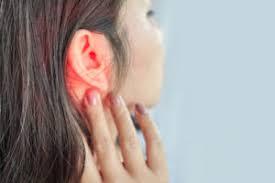Notifications

7 minutes, 29 seconds
-24 Views 0 Comments 0 Likes 0 Reviews

Let’s talk about something most people brush off as harmless — snoring. It might seem like just a nighttime annoyance, but in many cases, snoring can signal much deeper health concerns. One of the most overlooked links? Hearing loss symptoms. Yes, that’s right — the loud rumbling in your sleep might be doing more damage than just annoying your partner. It could be a warning sign that your ears and your sleep health are both in trouble.
In this article, we’ll explore the surprising connection between snoring and hearing loss symptoms, how poor sleep quality affects your hearing, and what you can do to reclaim peaceful nights and better health.
Snoring happens when the flow of air through your mouth and nose is partially blocked during sleep. This causes the surrounding tissues to vibrate, producing that all-too-familiar sound. While occasional snoring is common, chronic snoring—especially when accompanied by gasping, choking, or long pauses in breathing—could point to a condition called obstructive sleep apnea (OSA).
OSA is a serious sleep disorder where breathing repeatedly stops and starts, depriving the body (and brain) of oxygen. This can have far-reaching effects on your heart, brain, and—as recent research suggests—your hearing.
You might be wondering: what does your ear health have to do with snoring?
Here’s what’s happening behind the scenes:
Oxygen Deprivation: When your breathing is disrupted during sleep, it can lower oxygen levels in the blood. This lack of oxygen can harm delicate inner ear structures over time, potentially contributing to hearing loss symptoms, such as muffled hearing or tinnitus (ringing in the ears).
Inflammation & Circulation Issues: Sleep apnea and chronic snoring are known to cause inflammation throughout the body. This can reduce blood flow to your cochlea—the spiral-shaped organ in your inner ear responsible for translating sound.
Noise Trauma: Believe it or not, snoring itself can be damaging. The decibel levels of loud snoring can reach up to 90 dB—equivalent to a lawnmower. Repeated exposure to this sound (especially in your own head) could contribute to noise-induced hearing loss.
If you or someone you love snores regularly and is also experiencing these signs, it may be time to consult both a sleep specialist and an audiologist:
Constant ringing in the ears (tinnitus)
Difficulty hearing in noisy environments
Feeling like sounds are muffled or distant
Needing to turn up the TV or ask people to repeat themselves
Daytime fatigue, irritability, or brain fog
These are common hearing loss symptoms, and when combined with disrupted sleep, they may indicate that your hearing is being affected by a larger sleep-related issue.
The first step toward answers is understanding the root cause of your snoring and symptoms. Here’s how professionals typically approach it:
Sleep Study (Polysomnography): This overnight test monitors your breathing, heart rate, and oxygen levels. It can confirm whether you have sleep apnea.
Hearing Evaluation: A certified audiologist can test for hearing loss and detect any early warning signs of damage.
ENT Consultation: If structural issues like enlarged tonsils, a deviated septum, or sinus congestion are contributing to your snoring, an ENT (ear, nose, and throat specialist) can help with targeted treatments.
Many people can significantly reduce snoring — and its effects on hearing — with lifestyle changes and conservative treatments.
Lose weight if you're overweight — excess tissue around the neck can compress airways.
Avoid alcohol before bed — it relaxes the throat muscles too much.
Change sleep positions — sleeping on your back can worsen snoring.
Nasal strips or decongestants to keep nasal passages open.
Oral appliances that reposition the jaw and tongue.
CPAP machines for those diagnosed with sleep apnea — these deliver a constant stream of air to prevent airway collapse.
If home remedies don’t work, medical procedures may be necessary. Depending on the cause, your ENT may recommend:
Coblation: Minimally invasive tissue reduction to open the airway.
UPPP Surgery: Removes excess tissue in the throat.
Tonsillectomy or Adenoidectomy: Especially helpful for those with obstructive tissue.
Septoplasty or Balloon Sinuplasty: Corrects nasal structure to improve breathing.
In some advanced cases, hypoglossal nerve stimulation—a small implanted device that stimulates the tongue muscles—may be recommended.
Your ears and your sleep health are more connected than you might think. Chronic snoring is more than a nuisance — it’s a potential alarm bell for underlying health problems, including hearing loss symptoms.
Ignoring these signs can lead to long-term complications, including permanent hearing damage and cardiovascular issues. But the good news? Many snoring-related problems are treatable, and early intervention can make all the difference.
If you’re noticing both snoring and subtle hearing changes, don’t wait. The team at Pacific View ENT, led by Dr. Armin Alavi in Camarillo, offers comprehensive evaluations for snoring, sleep apnea, and hearing concerns. With personalized, advanced treatment options—both surgical and non-surgical—you can start sleeping (and hearing) better in no time.

